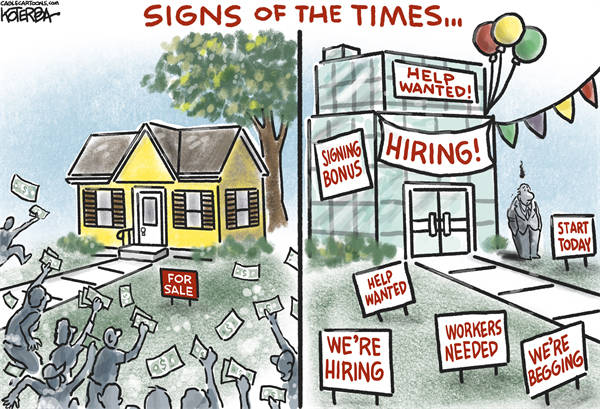They called me “The Trail Blazer,” Good Buddy.
That was my citizens band radio handle in the summer of 1977, when the hit movie “Smokey and the Bandit” created a CB craze and millions of kids like me dreamed of getting one. Much to my surprise, my father permitted me to do so — even though I needed to attach a large CB radio antenna to the roof of our house.
He saw the CB radio as an opportunity for me to learn how to manage my own finances — how to open a bank account, plan ahead, get a job and save money to achieve my goal. Too young to work a retail job, I applied for and got the only work available to me: golf-ball picker at a local driving range. Until summer arrived, when I could start later in the day and work more hours, I woke at 5:30 every morning before school and rode my bike two miles to the range.
I was handed an aluminum tool that was as long as a golf club and the shape of a tennis-ball cannister. It had three springs on the bottom. By pressing the tool down onto a golf ball, the springs would retract and the ball would be captured. I was assigned a section of dewy grass the size of a football field and had one hour to complete the job — for which I was paid $1 (about $4 in today’s money).
Needless to say, I was going to have to work many unpleasant mornings to save enough for a CB radio, which, if I remember correctly, was about $130 at the time. This memory came back to me when I read in a Yahoo News report that, after last summer’s horrible scarcity of summer jobs, there are 1.2 million part-time jobs available — more than 2019’s pre-pandemic numbers. But fewer teens are willing to take such jobs.
According to the U.S. Department of Labor, in 1978 about seven in 10 teenagers like me took part-time jobs, but in recent years prior to the pandemic it was down to four in 10. Why? The University of Pennsylvania’s Wharton School said it’s because more teens are taking internships or volunteer work to strengthen their college applications. In a sense, that means colleges are punishing kids who choose to work.
That’s regrettable because summer jobs offer a treasure trove of real-world learning opportunities: how to plan and execute projects, collaborate with different personalities and experience the satisfaction of exchanging your skills and labor for cold hard cash. When I got my first paycheck in 1977, I quickly learned that saving up for my CB radio would be even harder than I expected. I was introduced to my three silent partners — federal, state and local taxing authorities — who didn’t have to get their sneakers covered with dew to earn a chunk of my $1 hourly wage.
By the end of the summer, however, I’d finally saved enough to buy my CB radio. It was one of the most rewarding purchases I ever made — because I built up my dignity one lousy golf-ball plunk at a time. In the long run, dignity is the biggest reward of a summer job. I highly recommend taking one, Young Buddies.
Tom Purcell is an author and humor columnist for the Pittsburgh Tribune-Review. Email him at Tom@TomPurcell.com.



